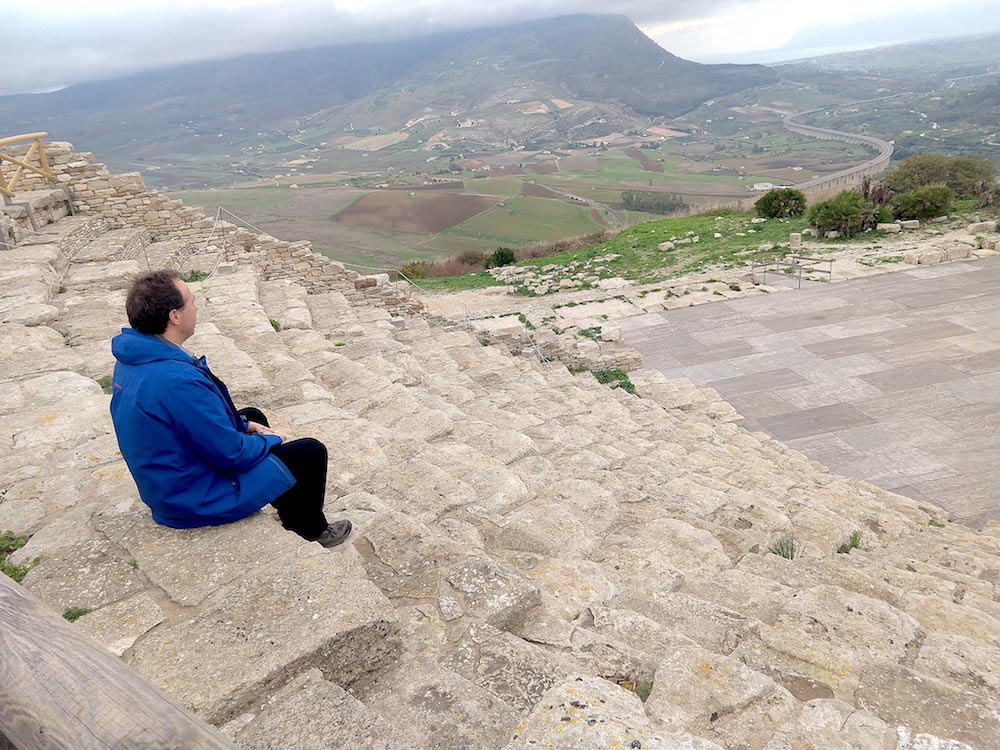[This article is from an 8-minute talk I gave to members of the Olympic Club on March 4, 2021, Unwittingly Aiding and Abetting the Enemy. I’ve added a few links and shared it here for members of the Olympic Club and the broader public. I’ve turned off comments but feel free to reach me directly or comment and share on social media.]
An 8 minute talk and an even quicker read.
Gentlemen, we’ve been at war for more than a year, now.
The enemy has killed more Americans than all of the Americans who were killed in World War I and II combined.
This foreign invader isn’t another nation state. They are in this fight, too. Our common enemy is the pathogen SARS-CoV-2, the virus that causes COVID-19 disease. SARS-CoV-2 is winning because it is exploiting our human cognitive limitations.
I’m going to share five of these limitations so you understand how it is that so many Americans are unwittingly aiding and abetting the enemy.
The word cognition comes from the latin word “cognoscere” which is to “get to know”. Cognition helps us to make sense of the world around us so that we can interact safely with our environment. This leads me to our first cognitive limitation.
We Rely on Our Feelings to Assess Risk.
That ladder doesn’t feel safe, that bear looks like she’s going to eat me, this food doesn’t smell right, etc. We can rely our our intuition and feelings to gauge the risk of a given situation. And, it usually turns out okay. After all, our species has survived without spreadsheets and having to carefully weigh the pros and cons of every decision to be made. Let me know if you find evidence of hieroglyphic spreadsheets.
When it comes to COVID-19 it’s a different story. Here is why. For the food, the ladder and the bear, our sense of risk is influenced by the direct experiences we have or those indirect experiences we have through film or news media or even stories heard. That’s the experience halo - if you remember my talk about experiences.
But, few Americans know what it’s like to experience respiratory distress, renal failure, or what it's like to have our toes or fingers succumb to tissue death.
It’s abstract. We haven’t seen the movie; we don’t feel it. We’re better equipped to imagine the risk of running across a busy highway than we are to assess a global pandemic that’s actively killing our compatriots.

Our Second Cognitive Shortcoming is Related to Finding Patterns.
Usually this is a strength. But, it's difficult to find patterns in things you cannot see. This enemy is invisible. We don’t see the virus even as it passes right beneath our noses.
Our pattern making brains are further challenged because of the time lags between exposure - infection - and death.
Delays imperil our ability to comprehend cause and effect. Imagine how confused you’d have been as a child if you pushed your toy truck and days later it finally moved.

Delays and invisibility create ambiguity. Something politicians and ideologues have exploited at the expense of human lives and public health - especially in the United States. Who killed Herman Cain? He attended the infamous Tulsa rally, but he also reportedly did plenty of travel in the weeks prior. Who was the source? Nobody pulled the trigger. Nobody laced his door knobs with Novichok.
The person who infected Herman Cain likely has no idea they even did it. It is conceivable that the person responsible for his death never even showed symptoms.
Asymptomatic carriers of SARS-CoV-2 are especially effective at aiding and abetting this pathogenic killer. A recent report published in the Journal of the American Medical Association puts the transmission of SARS-CoV-2 from people without COVID-19 symptoms at 59%.
COVID-19 has turned each of us into a potential serial killer.
Another Cognitive Deficit is Our Brains are Terrible at Understanding Exponential Growth.
Most of our real world experience is linear. Linear growth has the characteristic of growing by the same amount in each unit of time, like pandemic weight gain or tomatoes growing in Mr. Evan’s garden.
Exponential growth is different. It grows very slowly at first, but more and more rapidly with each unit of time. Examples include bacteria growth, compound interest, radioactive decay, and the spread of SARS-CoV-2.

Exponential growth is hard for us to conceptualize because it doesn’t dominate our visible world. When the effects of exponential growth do become visible we usually attribute them to something more understandable.
For example, you might hear someway say, "I got sick - with food poisoning. Yes, but it was exponential growth that turned a single bacterium into a population of 32,768 descendants after 5 hours of doubling every 20 minutes. That is your bad potato salad on a warm summer day scenario.
Maybe in addition to a mask mandate we should have a math mandate.
Our 4th Cognitive Deficit is that our Brains are Terrible at Interpreting Large Numbers.
As of Tuesday there were 516,000 deaths reported in the US due to COVID-19. Let’s give this number more meaning. Imagine a Boeing 737.
It has 23 rows of seats. Each row has 3 seats on each side of the aisle. So, each plane has 23 * 6 or 138 seats. So, 516,000 deaths / 365 days in this pandemic year is roughly 1413 people dead per day. Divide 1413 by the seat capacity of 138 and you get about 10.2 airplanes.

Thinking about it like this, it means that ten planes fully loaded with passengers have crashed on U.S. soil every day of this pandemic. Imagine if a traditional enemy shot that many planes out of the sky over U.S. soil. Our political and social conversations and actions would have been very different.
Once again the advantage goes to the invisible enemy that leverages our cognitive deficiencies. Those deficiencies exist in all of us - no matter our station in life. Nobody is immune.
Our 5th Cognitive Shortcoming is Also Related to Large Numbers.
When the death toll moves from say 510,000 to 516,000 it doesn’t mean that much. Large and increasing numbers make us numb. It’s a bizarre and well-documented phenomenon known as psychic numbing.
It has been studied by many psychologists including Paul Slovic who says, "Statistics are human beings with the tears dried off."
When we don’t feel we can help - we give up trying.

Summary
This psychic numbing along with all of the other worries of pandemic life can wear down even the most well-intentioned people.
And when we get tired we’re back to our first deficiency, not thinking clearly about risk. Now that people are getting vaccinated it is an opportune time for the virus to morph and recruit new citizen soldiers.
Many of you are vaccinated now or will be soon. Please remember, even vaccinated you can still spread the virus. My advice. Don’t get tired. Don’t give up. Don't give in. Don’t aid and abet this invisible killer, this public enemy #1.
No, leave that to your fellow unwitting Americans.
about the author
I see greater potential for all of us, as individuals, organizations, and even nations. This belief is what guides my writing and my work.
Greg is a virtual chief marketing officer to small and medium sized businesses. He founded Delightability, LLC. with the belief that if you delight customers success will follow.
Greg authored The Experience Design Blueprint, a step-by-step guide to designing better experiences and improving innovation culture. A recipe book for creating happier customers and healthier organizations, it has 78 images, 25 stories, and 56 recipes (mental models) that apply to nonprofit, for-profit, and government organizations.
His latest book, L’ impossipreneurs: A Hopeful Journey Through Tomorrow, is a light-hearted and deadly serious book about a brighter future where we live more meaningful lives, governments invest in people and sustainable progress, and technology serves humans.




